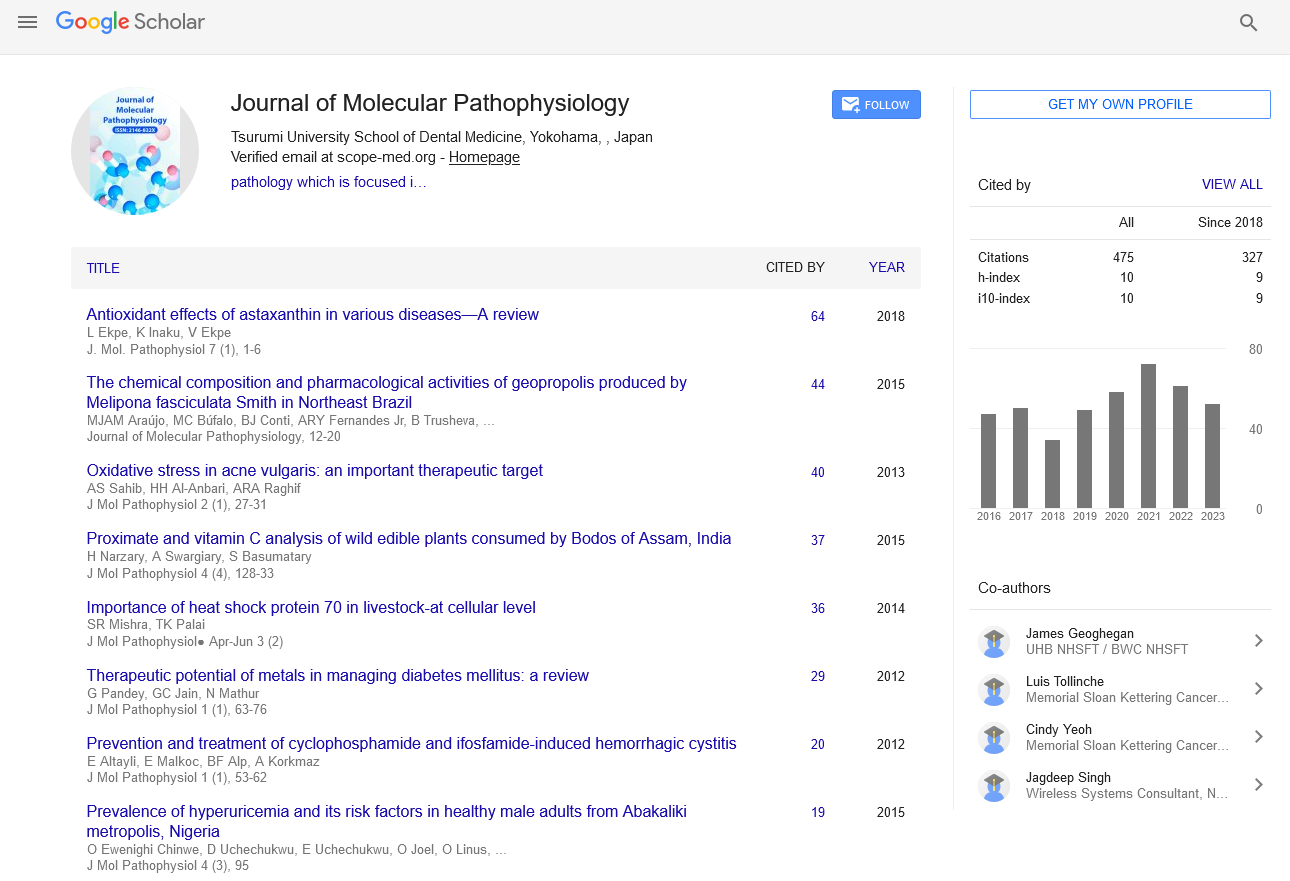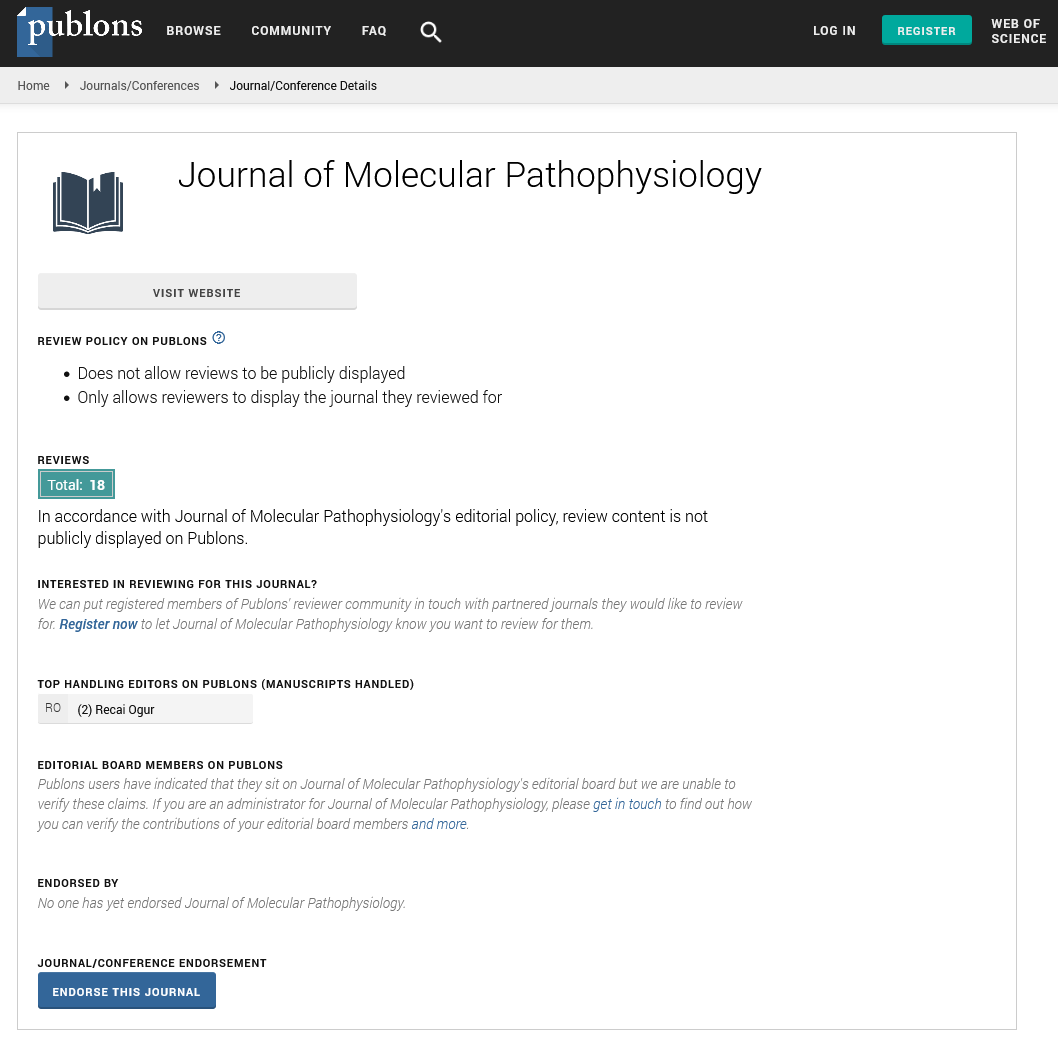Effects of Prolonged Fasting on Sperm Count
Abstract
Seriki A Samuel, Adebayo O Francis, Atsukwei Denen, Odetola O Anthony
Background and Aim: In Nigeria, like in many other parts of the Africa and the world, people embark on fasting for various reasons; medical, spiritual, experimental, etc. Some even engage in prolonged fasting for a period of 30 days, 40 days, 50 days, or even longer. Prolonged fasting, as it were, has been observed to have various effects on some physiological parameters of the body. The current study reports on the effects such prolonged fasting has on semen profiling in mice, with particular emphasis on sperm count, and how it consequently affects fertility in the male. Method: Twenty (20) male mice used for the research were grouped into two. While mice in Group 1 were fasted for 12 hours per day for 30 days during which they were denied access to feeds and water, mice in Group 2 (control) were allowed free access to feeds and water throughout the period of the 30 days. At the end of the period, the semen from both groups were separately collected and analyzed, with emphasis on the sperm count. Results: The results showed that sperm count in the fasted group significantly (p<0.05) dropped compared to the fed group. There was also a significant (p<0.05) weight lost in the fasted group due caloric restriction. Morphology and motility of the sperm cell were also affected. Conclusion: Results suggest that the 30 days fasting adversely affected the sperm cells. Some of the sperm cells may have died due to lack of nutrients to sustain it during the period of the fasting. The normal process of spermatogenesis may also have been distorted by the fasting resulting in the drop in the sperm count.
PDF






